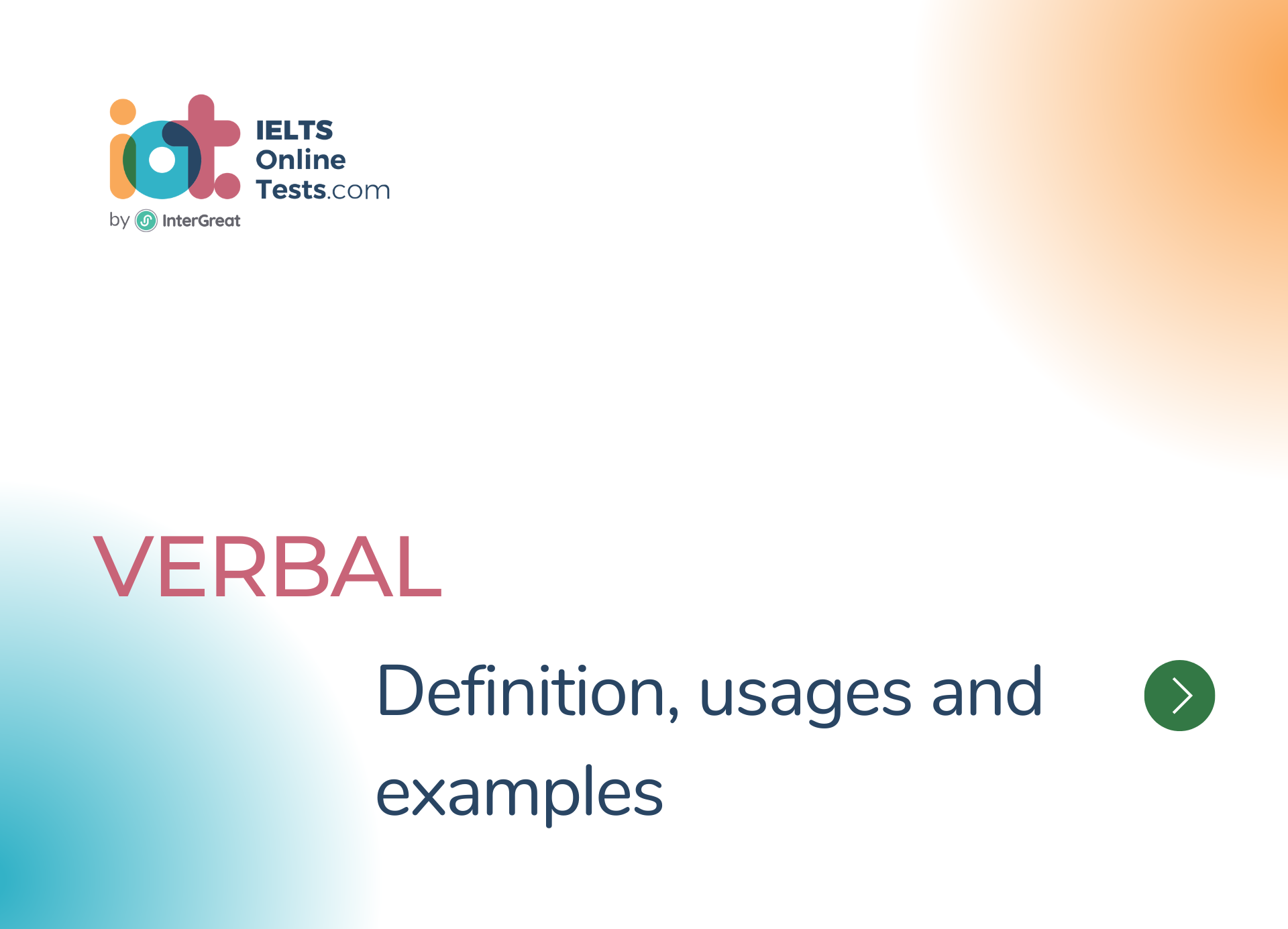
Verbal definition, usages and examples
Verbals are verb forms that are used as different parts of speech rather than as verbs in a sentence. They retain some characteristics of verbs but function as nouns, adjectives, or adverbs.
There are three types of verbals: gerunds, participles, and infinitives.
- Gerunds are verb forms that act as nouns in a sentence.
- They are formed by adding "-ing" to the base form of a verb.
- Examples:
- "Running is good exercise." (subject)
- "I enjoy swimming in the ocean." (direct object)
- "His favorite activity is painting." (predicate nominative)
- "I have a passion for dancing." (object of a preposition)
- Participles are verb forms that act as adjectives in a sentence.
- They can be in the present participle form (-ing) or the past participle form (-ed, -en, -d, -t, etc.).
- Examples:
- "The crying baby needs attention." (present participle)
- "The broken vase lay on the floor." (past participle)
- "The excited crowd cheered for their team." (present participle)
- "The stolen car was found abandoned." (past participle)
- Infinitives are verb forms that are usually preceded by the word "to" and function as nouns, adjectives, or adverbs.
- They can be used as subjects, direct objects, complements, or modifiers.
- Examples:
- "To learn is to grow." (subject)
- "I want to visit Paris." (direct object)
- "His goal is to become a doctor." (complement)
- "He woke up early to catch the train." (adverbial modifier)
It's important to note that verbals retain some verb-like qualities, such as the ability to take objects or be modified by adverbs, while functioning as different parts of speech. Understanding and correctly using verbals can enhance the clarity and effectiveness of your writing.




